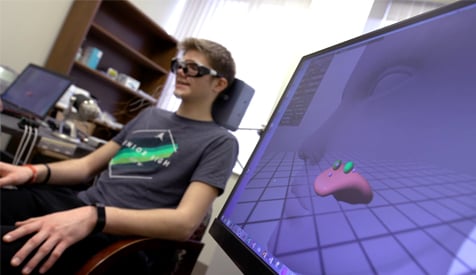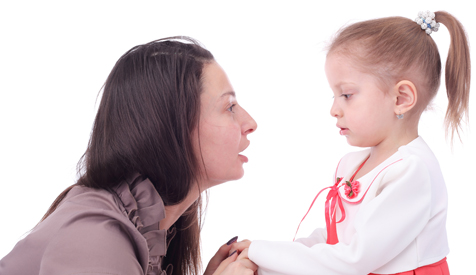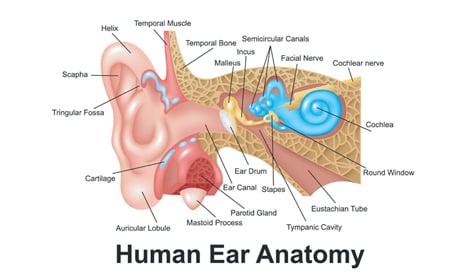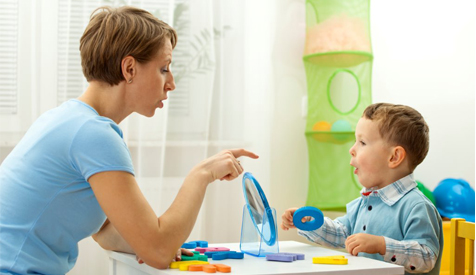A concussion is a mild form of Traumatic Brain Injury (TBI) caused by a bump, blow, or jolt to the head. Concussions can also occur from a fall or a blow to the body that causes the head to move rapidly back and forth.
It is a common opinion that concussions happen mostly to football players. However, they can also occur while playing other contact sports such as soccer, as a result of a vehicular accident, or during a fall.
Read More
Tags:
Teens,
Support,
Brain Injury,
toddler
Dysarthria is a motor speech disorder caused by damage to the central or peripheral nervous system – or sometimes both – as the result of a stroke or brain injury. People with dysarthria may have trouble with respiration (breathing), phonation (voicing), articulation (speech), prosody (patterns of stress and intonation) and resonance (e.g., nasality).
Read More
Tags:
Speech,
Communication,
Stroke,
talking
Let's face it, sometimes we give it our all and just don't see the results we desire. When you or your child has been working forever on a sound like "r" or "s" and the progress isn't happening, the results can be disappointing. I get it-- having one little speech sound error hang around comes with a whole host of problems. Whether it is jokes at your expense, anxiety meeting new people, or even bullying, you would do anything to make a change.
Read More
Tags:
Speech,
Communication,
Teens,
Voice,
talking
Angelman syndrome is a rare neurogenetic disorder that occurs in about 1 out of every 15,000 people. Most people with Angelman have very limited speech, or no speech at all. If you’re the parent of a young child with Angelman, you may be wondering how you can help your child learn to communicate, since speech is not going to be their main way of communicating. Here are a few suggestions to get you started:
Read More
Tags:
Speech,
Language,
Communication,
Voice,
toddler,
talking
Good ear hygiene is often associated with the presence of earwax, commonly known as cerumen. Wax may not be visually pleasing, but it is beneficial to your health. This substance is naturally produced in the ear canal and acts as a protective lubricate against external objects such as dust, dirt, and insects.
Read More
Tags:
Hearing,
Teens,
Caregiving,
Hearing Loss,
toddler,
"ears"
If you are having difficulty understanding your child, you might want to consider a speech-language evaluation. An evaluation is a normal step to pursue when parents or caregivers suspect difficulty with communication.
Ask your pediatrician for a referral to a speech-language pathologist (SLP) - a professional who diagnoses speech and language difficulties. An evaluation will include the following:
Read More
Tags:
Speech,
Communication,
Voice,
toddler,
talking
Toddlers want to feel included and competent; choose books that your child can follow along with, especially those with repetitive text so he or she can fill in words. Maintain your toddler's interest by choosing books with small amounts of text on the page and books about topics that you know are of interest.
For younger toddlers (12 to 24 months) you'll want sturdy board books with pictures (especially photos) of kids doing the things they do every day. Books about bedtime, baths, or mealtime are all good choices; so are books about saying hello or good-bye. Keep active hands busy with lift-the-flap pages and textures to feel.
Read More
Tags:
Speech,
reading,
Voice,
toddler,
talking
Early in infancy, you will see signs that indicate that your child is hearing, listening, and understanding what is going on around him/her. Your child is learning language long before he/she produces that first word.
There is a typical progression to language development. Initially, your child will turn to find sounds, follow with his/her eyes when something moves in their view, look at what you are looking at (joint attention). All of these skills are part of language development. Later, your child will respond by pointing or may get your attention by touching you or vocalizing.
Read More
Tags:
Speech,
Language,
Communication,
Voice,
toddler,
talking
Learning to read can be challenging for children. Fortunately, research is now available that suggests how to give each child a good start in reading. When parents help their children learn to read, they help open the door to a new world.
Read More
Tags:
Speech,
reading,
literacy,
Learning,
toddler
Aphasia is a language disorder resulting from an injury to the brain, such as a stroke or head trauma. Aphasia involves varying degrees of communication difficulties in these areas:
Spoken Language Comprehension - otherwise known as “Receptive Language” or “Auditory Comprehension.”
Symptoms may include:
Read More
Tags:
Speech,
Language,
Communication,
Support,
Stroke,
Brain Injury,
talking



















